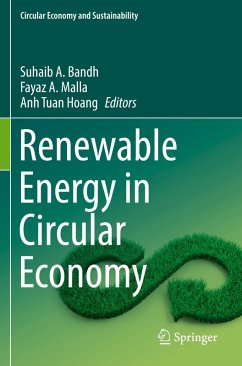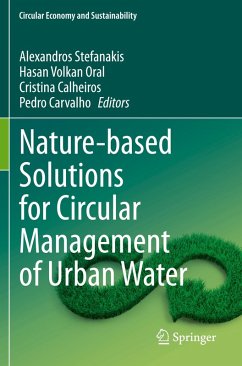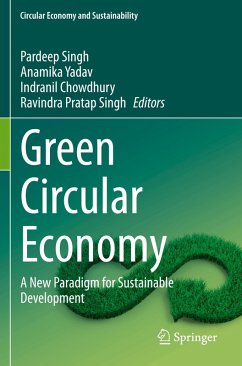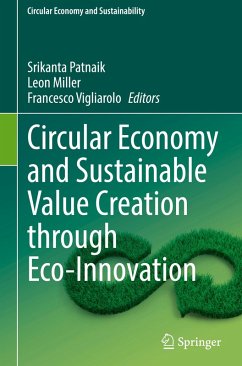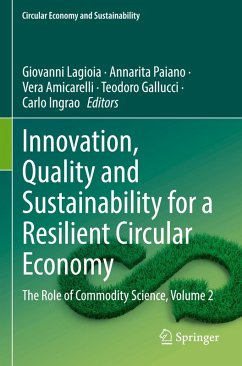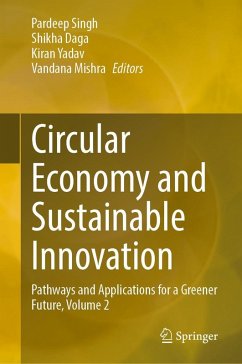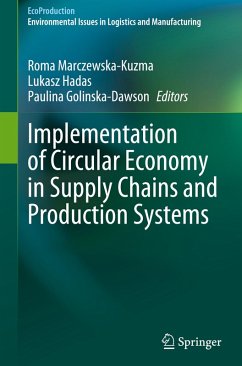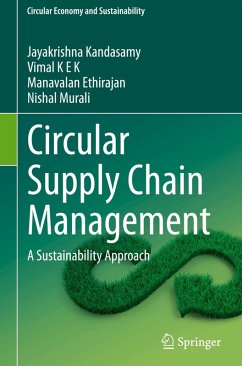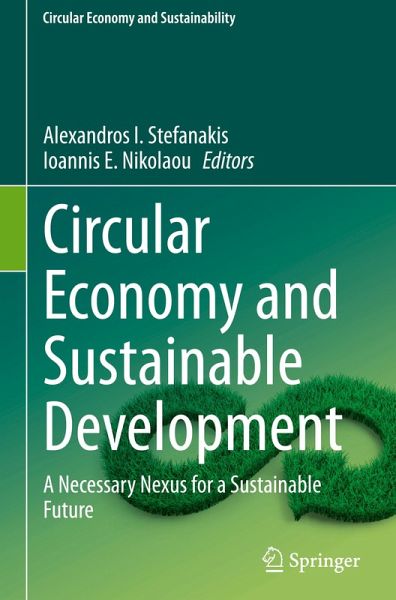
Circular Economy and Sustainable Development
A Necessary Nexus for a Sustainable Future
Herausgegeben: Stefanakis, Alexandros I.; Nikolaou, Ioannis E.

PAYBACK Punkte
76 °P sammeln!
This book will highlight the role of CE in the sustainability field as it is expressed in the various fields and disciplines and its contribution to building a sustainable society by providing a better understanding of the relevant social and cultural structures and the need for cross-disciplinary knowledge and diverse skills. Such an integrated approach which combines the concept of sustainability in the engineering field to create a CE, has not yet been presented in detail in the published literature, and there are only scattered studies covering only small parts of this holistic approach. H...
This book will highlight the role of CE in the sustainability field as it is expressed in the various fields and disciplines and its contribution to building a sustainable society by providing a better understanding of the relevant social and cultural structures and the need for cross-disciplinary knowledge and diverse skills. Such an integrated approach which combines the concept of sustainability in the engineering field to create a CE, has not yet been presented in detail in the published literature, and there are only scattered studies covering only small parts of this holistic approach. Hence, this book will represent a single reference that will provide summarized information and state-of-the-art knowledge on this topic of the future. The book will include chapters showcasing/investigating the relation between circular economy principles and their realization in different engineering fields. This includes theoretical justification, research studies and full-scale case studies. The approach focuses on two distinct levels: macro and micro, on both production and consumption sides.



